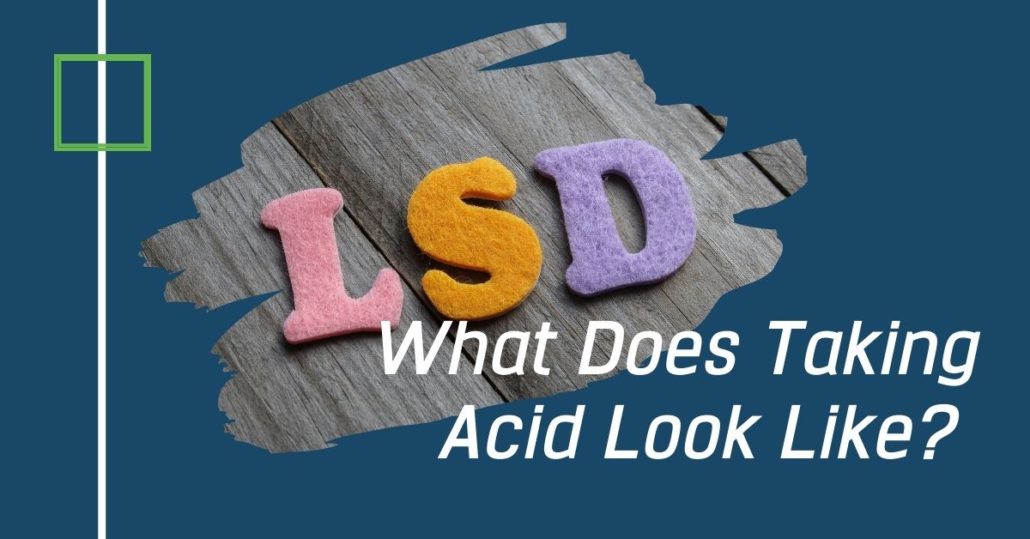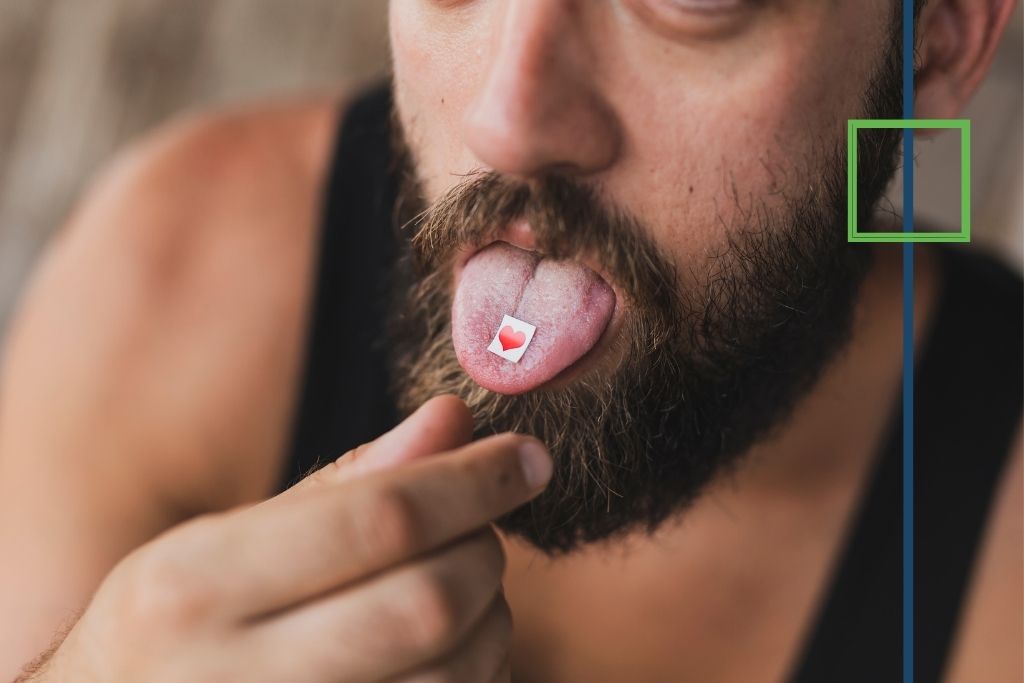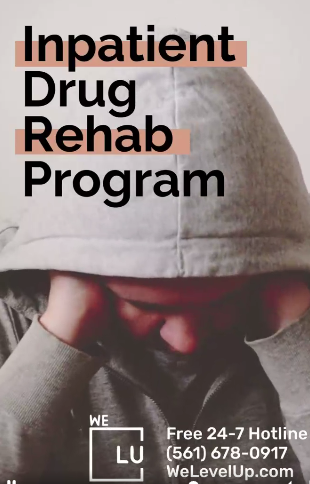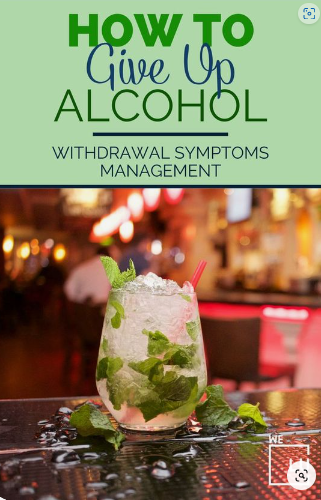Can LSD Kill You? LSD Overdose Symptoms & Treatment
LSD (lysergic acid diethylamide) was discovered almost 75 years ago, and has been the object of episodic
controversy ever since. While initially explored as an adjunctive psychiatric treatment, its recreational
use by the general public has persisted and on occasion has been associated with adverse outcomes,
particularly when the drug is taken under suboptimal conditions.
Can you overdose from LSD? Recent media reports have unfortunately implicated “LSD toxicity” in five cases of sudden LSD deaths. On close examination, however, two of these LSD deaths were associated with ingestion of massive LSD overdoses, two were evidently in individuals with psychological agitation after taking standard doses of LSD who were then placed in maximal physical restraint positions (hogtied) by police, following which they suffered fatal cardiovascular collapse, and one case of extreme hyperthermia leading to death that was likely caused by a drug substituted for LSD with strong effects on central nervous system temperature regulation.
Lysergic acid diethylamide (LSD) is a semi-synthetic natural product derived in nature from the rye fungus, Claviceps purpurea. It was first synthesized in 1938 by Swiss chemist Albert Hofmann. Although LSD is now classified as a Schedule 1 drug with no safe or recognized therapeutic use, its informal use by the public has continued over the past 50+ years.
What happens if you overdose on LSD? Death from LSD use can occur when the intoxication leads the user to carry out dangerous activities such as walking across a busy highway, attempting to swim, rock climbing, etc. As of this writing, there are two documented cases where LSD presumably directly led to a LSD deaths. In both cases, post-mortem analysis indicated that the decedents had ingested massive doses of LSD.
Can You Overdose on LSD?
Can you OD from LSD? LSD (lysergic acid diethylamide), commonly referred to as “acid,” is a powerful, mind-altering substance that can produce hallucinations and mood alterations. When someone takes too much LSD, they may experience terrifying hallucinations. It is encountered on the street as tablets or capsules, as a liquid in alcohol or water, in gelatin squares, or dissolved on a piece of paper known as a “blotter,” which is the most popular form.
Is it possible to overdose on LSD? When someone experiences an LSD overdose, likely they have experienced what is more commonly known as a “bad trip.” This is not to say that LSD use is without its dose-dependent dangers, however. Severe injury and death have occurred as an indirect result of using LSD, in that accidents, self-mutilation, and suicide have occurred during these trips when people are largely unaware of what they are doing.
How Much LSD Does it Take to Overdose?
How much LSD to overdose? Researchers estimated that the lethal oral dose of LSD in men is 14 mg, based on the reported LD50 in rabbits and one elephant. It was later revised to an estimate of the lethal blood concentration based on mouse and rat studies as 4.8mg/mL, and revised the lethal oral dose of LSD in humans to be 100 mg. How much LSD can kill you? They extrapolate, based on a study in cats, that the decedent, in this case, may have received an LSD dose equivalent to about 320 mg intravenously, or “23 times the previously calculated lethal human dose.”
Deaths from LSD
Can LSD cause death? A 25-year-old male died 16 hours after being admitted to the hospital, but it is not reported how much earlier his LSD ingestion occurred. Analysis of ante-mortem serum gave 14.4 ng/mL, but if analysis of his plasma had been carried out more proximal to his ingestion of the drug, this concentration would have been much higher.
A report on massive LSD overdose in eight patients who nasally insufflated pure LSD tartrate powder, believing it to be cocaine. They were admitted to the emergency room within 15 min after insufflation. Five patients were comatose, and most were extremely hyperactive with severe visual and auditory hallucinations. All had sinus tachycardia, widely dilated pupils, emesis, flushing, and sweating. Fever developed in four and diarrhea in two.
Transient hypertension was present in three patients, but no patient had convulsions. Specimens of blood were obtained on admission. Blood concentrations of LSD were measured for four patients as high as 26 ng/mL. Gastric concentrations of LSD were as high as 7.0 mg/100 mL (or 70,000 ng/mL). After supportive therapy, all eight patients fully recovered within 2–3 days.

Skip To:
Learn More:
Get Help. Get Better. Get Your Life Back.
Searching for Accredited Drug & Alcohol Rehab Centers Near You? Or Mental Health Support?
Even if you have failed previously, relapsed, or are in a difficult crisis, we stand ready to support you. Our trusted behavioral health specialists will not give up on you. Call us when you feel ready or want someone to speak to about therapy alternatives to change your life. Even if we cannot assist you, we will lead you wherever you can get support. There is no obligation. Call our hotline today.
FREE Addiction Hotline – Call 24/7LSD Abuse Statistics
Individuals of all ages use LSD. Data reported in the National Household Survey on Drug Abuse indicate that an estimated 20.2 million U.S. residents aged 12 and older used LSD at least once in their lifetime. The survey also revealed that many teenagers and young adults use LSD–742,000 individuals aged 12 to 17 and 4.5 million individuals aged 18 to 25 used the drug at least once.
5.5+ million people
An estimated 5.5+ million people in the U.S. used hallucinogens in the past year, in 2019
Source: NIDA
4 %
LSD use between 2002 and 2019 increased overall and in all age groups, with the past 12-month rate increasing from 0.9 percent in 2002 to 4 percent in 2019
Source: NIDA
56.4%
LSD use in the US jumped 56.4% from 2015 to 2018
Source: NCBI
LSD Drug Facts
What is LSD?
LSD is a potent hallucinogen that has a high
potential for abuse and currently has no accepted
medical use in treatment in the United States.
What is its origin?
LSD is produced in clandestine laboratories in the
United States.
What are common street names?
Common street names include:
- Acid
- Dots
- Mellow
- Yellow
- Window Pane
What does it look like?
LSD is an odorless and colorless substance with
a slightly bitter taste. LSD is available in saturated
absorbent paper (e.g., blotter paper, divided
into small, decorated squares, with each square
representing one dose), tablets or “micro dots,”
saturated sugar cubes, or in a liquid form.
How is it abused?
LSD is abused orally.
What is its legal status in the United States?
LSD is a Schedule I substance under the
Controlled Substances Act. Schedule I
substances have a high potential for abuse, no
currently accepted medical use in treatment in the
United States, and a lack of accepted safety for
use under medical supervision.
LSD Overdose Symptoms
Acid trip symptoms can begin within a few hours after use. LSD side effects can range from mild to highly uncomfortable and even scary. Because this drug produces a lot of hallucinations, users often experience anxiety when high.
Some commonly experienced side effects of LSD can include:
- Sweating
- Nausea
- Dilated pupils
- Rapid heartbeat
- Dry mouth
- Tremors
- Insomnia
- Blurred vision
- Raised body temperature
- Weakness
- A distorted sense of time
- Visual hallucinations
- Mixed senses (for example, “seeing” sounds)
- Intensified sense of smells and noises
- A sense of a mystical experience

Get Your Life Back
Find Hope & Recovery. Get Safe Comfortable Detox, Addiction Rehab & Mental Health Dual Diagnosis High-Quality Care at the We Level Up Treatment Centers Network.
Hotline (877) 378-4154LSD Abuse
Trips on LSD can go from bad to worse in a matter of minutes. While most symptoms will go away after a given time, usually 24 hours, some can stick around indefinitely. In fact, one of the chief dangers of LSD use comes with the potential for the onset of psychosis. This isn’t just the case for users with prior mental health disorders either. Some individuals without such a predisposition were permanently affected as well.
Signs and Symptoms of LSD Abuse
No matter its form, LSD brings about powerful effects that lead users to abuse it over and over again. The hallucinogen, upon entering the body, directly takes a hold of a user’s brain and causes him to disconnect completely from reality.
The immediate effects caused by an LSD “trip” are much more emotional than physical. Users feel a wave of many emotions and swing rapidly from one to the other. When a higher dose is taken, LSD users may experience delusions and visual hallucinations.
They also may experience a “cross-over” of senses; in which one may hear colors and see sounds. Because of these emotional and mental effects, LSD at one time used traditionally in spiritual and religious rituals. But these same effects that led it to be a high drug of abuse.
Other Side Effects of LSD Parents Can Look Include:
- Increased heart rate and blood pressure
- Dilated pupils
- Elevated body temperature
- Profuse sweating and/or chills
- Loss of appetite
- Sleeplessness
- Dry mouth
- Tremors
- Long-term psychosis or depression
Comfortable Facilities & Amenities
High-Quality Addiction & Mental Health Rehabilitation Treatment
Rehab Centers TourRenowned Addiction Centers. Serene Private Facilities. Inpatient rehab programs vary.
Addiction Helpline (877) 378-4154Proven recovery success experience, backed by a Team w/ History of:
15+
Years of Unified Experience
100s
5-Star Reviews Across Our Centers
10K
Recovery Success Stories Across Our Network
- Low Patient to Therapist Ratio
- Onsite Medical Detox Center
- Comprehensive Dual-Diagnosis Treatment
- Complimentary Family & Alumni Programs
- Coaching, Recovery & Personal Development Events
What are the Risks of LSD?
The effects of LSD are unpredictable. They depend on the amount taken, the person’s mood and personality, and the surroundings in which the drug is used. It is a roll of the dice—a racing, distorted high or a severe, paranoid low.
Normally, the first effects of LSD are experienced thirty to ninety minutes after taking the drug. Often, the pupils become dilated. The body temperature can become higher or lower, while the blood pressure and heart rate either increase or decrease. Sweating or chills are not uncommon.
LSD users often experience loss of appetite, sleeplessness, dry mouth, and tremors. Visual changes are among the more common effects—the user can become fixated on the intensity of certain colors.
Extreme changes in mood, anywhere from a spaced-out “bliss” to intense terror, are also experienced. The worst part is that the LSD user is unable to tell which sensations are created by the drug and which are part of reality.

Extreme changes in mood, anywhere from a spaced-out “bliss” to intense terror, are also experienced. The worst part is that the LSD user is unable to tell which sensations are created by the drug and which are part of reality. Some LSD users experience an intense bliss they mistake for “enlightenment.”
The ability to make sensible judgments and see common dangers is impaired. An LSD user might try to step out a window to get a “closer look” at the ground. He might consider it fun to admire the sunset, blissfully unaware that he is standing in the middle of a busy intersection.
Because LSD accumulates in the body, users develop a tolerance for the drug. In other words, some repeat users have to take it in increasingly higher doses to achieve a “high.” This increases the physical effects and also the risk of a bad trip that could cause psychosis.
World-class, Accredited, 5-Star Reviewed, Effective Addiction & Mental Health Programs. Complete Behavioral Health Inpatient Rehab, Detox plus Co-occuring Disorders Therapy.
CALL (877) 378-4154End the Addiction Pain. End the Emotional Rollercoaster. Get Your Life Back. Start Drug, Alcohol & Dual Diagnosis Mental Health Treatment Now. Get Free No-obligation Guidance by Substance Abuse Specialists Who Understand Addiction & Mental Health Recovery & Know How to Help.

Mixing LSD and Alcohol
Combining LSD and alcohol tends to reduce the effect of both substances. Many people think this is an indication that it is a safe practice, but it actually creates a false sense of security and can result in overdosing on the drug or drinking too much, resulting in unpleasant experiences and total loss of control. This is largely because LSD reduces your ability to properly perceive the effect of the alcohol.
As is typical with mind-altering substances, the results can also be somewhat unpredictable. Sometimes the mixture of these two substances results in intense vomiting, and other times it may simply be a long state of hallucination followed by an extreme hangover. Needless to say, LSD and alcohol are both potent substances and should not be combined.
Mixing LSD and Shrooms (Hippie Flip)
Another drug mix known to many is the combination of MDMA or LSD and shrooms (hippie flip). Mixing these drugs together, not surprisingly, can have extreme effects that can lead to danger and leave the user disoriented.
There are many different factors that affect how exactly this combination will affect a person, including which order they take the drugs in, how much they take of each, how pure the drugs are, and the personal health of the user.
Shrooms on their own can produce hallucinations, panic, paranoia, nausea, and intense introspection. Hippie flipping, then, may also produce these effects as well as any or all of the following:
- A sense of bonding on a social level
- Confusion and disorientation
- Enhanced experience of visuals
- Elevated senses in general
- Increase in emotional intensity
Because of the unpredictable and psychologically addictive nature of both LSD and shrooms, both should be avoided, including both their separate use and combined use.
Mixing LSD and Whippits
“Whippits” is basically just slang for nitrous oxide when it’s used as an inhalant. It is one of the top 10 most abused drugs globally, and minors are some of the primary users of it. The high experience from inhaling nitrous oxide is intense, but it also fades relatively quickly. Nonetheless, the overuse of this type of drug intake can cause serious damage and even death.
The combination of LSD and whippits can be dangerous especially because the LSD trip that one experiences may cause just enough confusion or disorientation to cause them to “huff” a dangerous amount of nitrous oxide.
Experience Transformative Recovery at the We Level Up Treatment Center.
See our authentic success stories. Get inspired. Get the help you deserve.



Start a New Life
Begin with a free call to an addiction & behavioral health treatment advisor. Learn more about our dual-diagnosis programs. The We Level Up treatment center network delivers various recovery programs at each treatment facility. Call to learn more.
- Personalized Care
- Caring Accountable Staff
- Comfortable Amenities
- Licensed & Accredited
- Renowned w/ 5-Star Reviews
We’ll Call You
LSD Abuse Treatments
There is a strong link between mental health and LSD drug abuse. Individuals who struggle with mood disorders like depression and anxiety are more susceptible to developing an addiction to drugs or alcohol, often to self-medicate symptoms of their underlying mental health condition. These co-occurring disorders can make each other worse without proper treatment.
To determine the most effective ways to treat polysubstance, it’s crucial first to get an accurate assessment of all the symptoms. When a mental health professional has evaluated the symptoms, it may be determined that another form of mental condition is present and needs a particular type of treatment. Very often, some combination of psychotherapy, medication, and lifestyle changes are effective for coping with functional.
Detox Treatment in New Jersey Rehab Center
The first step in treatment is a medical detox. It will help you navigate the complicated withdrawal process but doesn’t address patterns of thought and behavior that contribute to drug abuse. Various treatment approaches and settings can help provide the ongoing support necessary to maintain long-term sobriety after you complete detox.
Cravings are very common during detox and can be challenging to overcome. This often leads to relapse. Constant medical care provided during inpatient treatment helps prevent relapse. Clinicians can provide the necessary medication and medical expertise to lessen cravings and the effects of withdrawals.
Psychotherapy
Several different modalities of psychotherapy have been used in the treatment of depression, including:
- Cognitive Behavioral Therapy (CBT) – is an effective treatment that involves making changes in both the patterns of negative thoughts and the behavioral routines which are affecting the daily life of the depressed person for various forms of depression.
- Dialectical Behavioral Therapy – is a comprehensive mental health and substance abuse treatment program whose ultimate goal is to aid patients in their efforts to build a life worth living. The main goal of DBT is to help a person develop what is referred to as a “clear mind.”
- Person-Centered Therapy – is a strategy that allows and encourages clients to understand and resolve their concerns in a safe, supportive environment.
Dual Diagnosis Treatment Centers New Jersey
Substance abuse and mental health disorders often co-occur. In many cases, traumatic experiences can result in a mental health disorders and substance abuse. Dual diagnosis programs in New Jersey treat both of these issues together. The best approach for the treatment of dual diagnosis is an integrated system. This strategy treats both the substance abuse problem and the mental disorder simultaneously. Regardless of which diagnosis (mental health or substance abuse problem) came first, long-term recovery will depend mainly on the treatment for both disorders done by the same team or provider.
LSD Addiction Rehab Near Me
Please, do not try to detox on your own. The detox process can be painful and difficult without medical assistance. However, getting through the detox process is crucial for continued treatment. We Level Up provide proper care with round-the-clock medical staff to assist your recovery through our opioid addiction treatment program medically. So, reclaim your life, and call us to speak with one of our treatment specialists. Our counselors know what you are going through and will answer any of your questions.
LSD addiction is a condition that can cause major health problems, such as overdosing on LSD. We Level Up NJ rehab treatment & detox center can provide you, or someone you love, the tools to recover from this with professional and safe treatment. Feel free to call us to speak with one of our counselors. We can inform you about this condition and clarify issues like withdrawal symptoms. Our specialists know what you are going through. Please know that each call is private and confidential.

Search We Level Up NJ “Can LSD Kill You?” Topics & Resources
Sources
[1] Drug Fact Sheet: LSD (dea.gov)
[2] Hallucinogens DrugFacts | National Institute on Drug Abuse (NIDA) (nih.gov)
[3] Lysergic Acid Diethylamide (LSD) | NIDA Archives (drugabuse.gov)
[4] Lysergic Acid Diethylamide (LSD) – StatPearls – NCBI Bookshelf (nih.gov) – Hwang KAJ, Saadabadi A. Lysergic Acid Diethylamide (LSD) [Updated 2022 Jul 11]. In: StatPearls [Internet]. Treasure Island (FL): StatPearls Publishing; 2022 Jan-. Available from: https://www.ncbi.nlm.nih.gov/books/NBK482407/ Tag: can u overdose on lsd/ overdose lsd /
[5] Lysergic Acid Diethylamide (LSD) – StatPearls – NCBI Bookshelf (nih.gov)
[6] Lysergic Acid Diethylamide (LSD) – StatPearls – NCBI Bookshelf (nih.gov) – Hwang KAJ, Saadabadi A. Lysergic Acid Diethylamide (LSD) [Updated 2022 Jul 11]. In: StatPearls [Internet]. Treasure Island (FL): StatPearls Publishing; 2022 Jan-. Available from: https://www.ncbi.nlm.nih.gov/books/NBK482407/ Tag: can you overdose lsd/
[8] Protein structure reveals how LSD affects the brain | National Institutes of Health (NIH)





